Try out a sample from our sample packs!
Our 100% Compostable Polymailers offer eco-friendly shipping protection, certified for both home and industrial composting. Available in stock sizes and fully customizable.
-
Stock Options (70 µm):
- 10 x 13" – Case Size: 1,000 Units (900 units - White)
- 12 x 15.5" – Case Size: 600 Units
- 14.5 x 19" – Case Size: 500 Units
- 19 x 24" – Case Size: 300 Units
-
Certifications: TUV, ABA
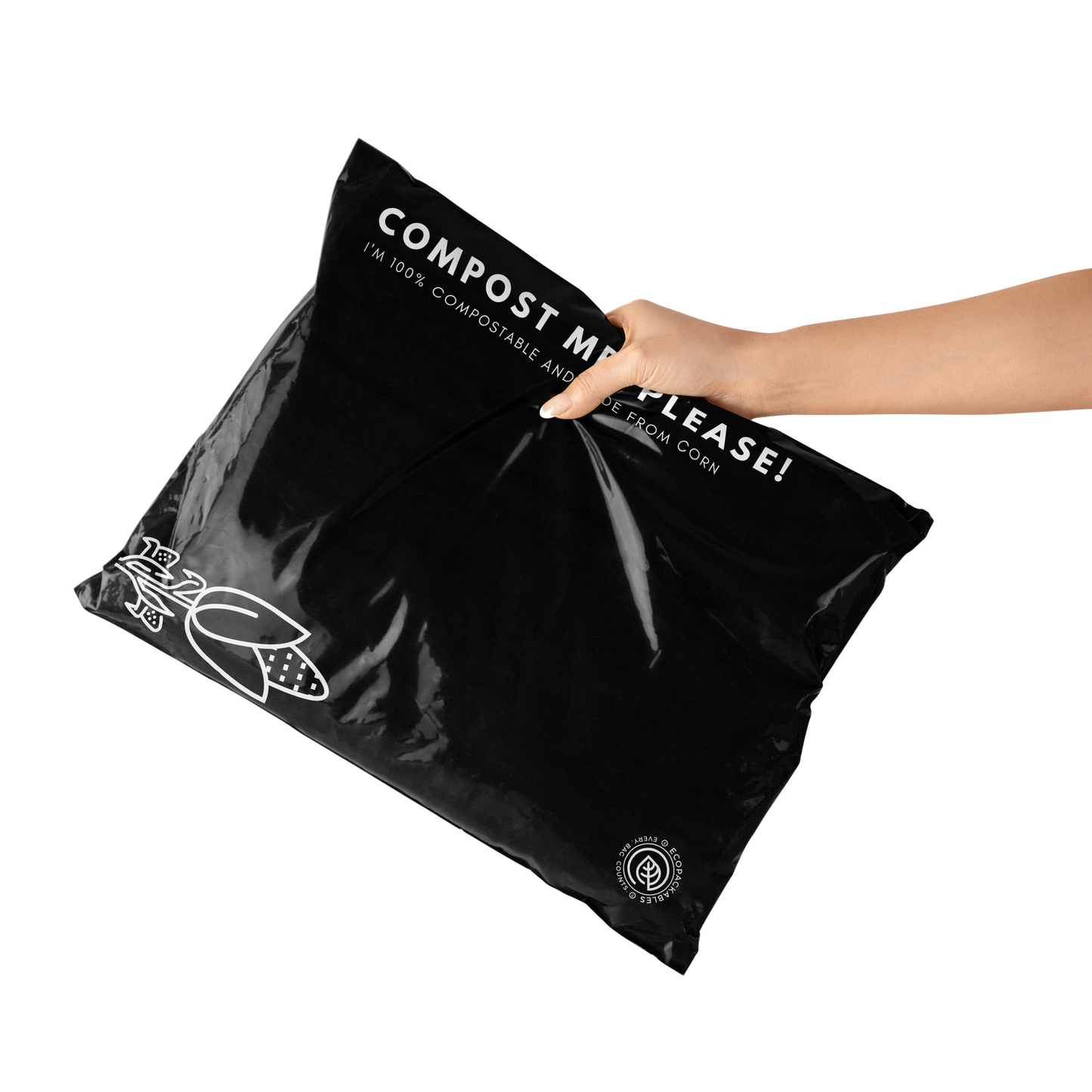
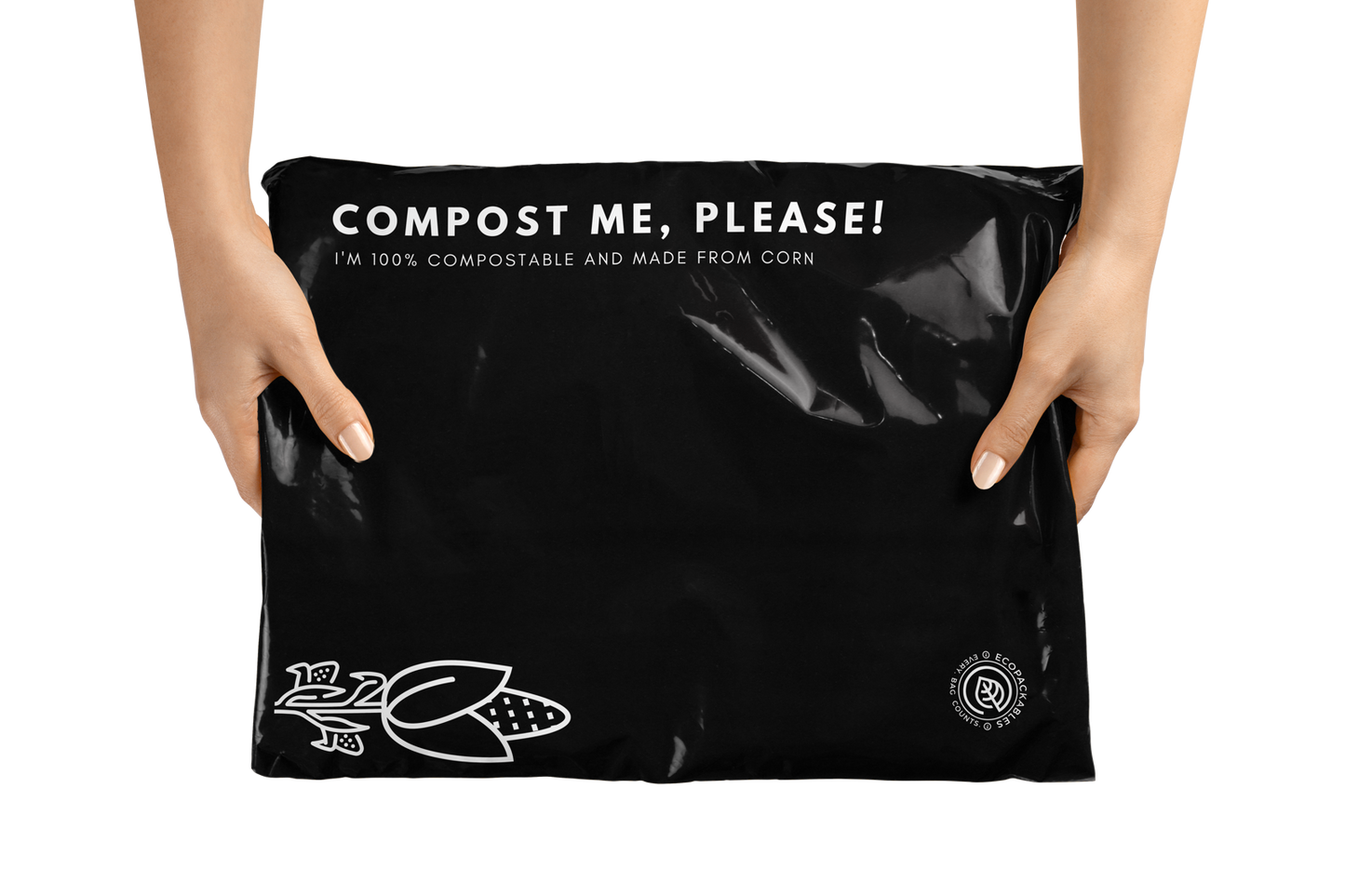
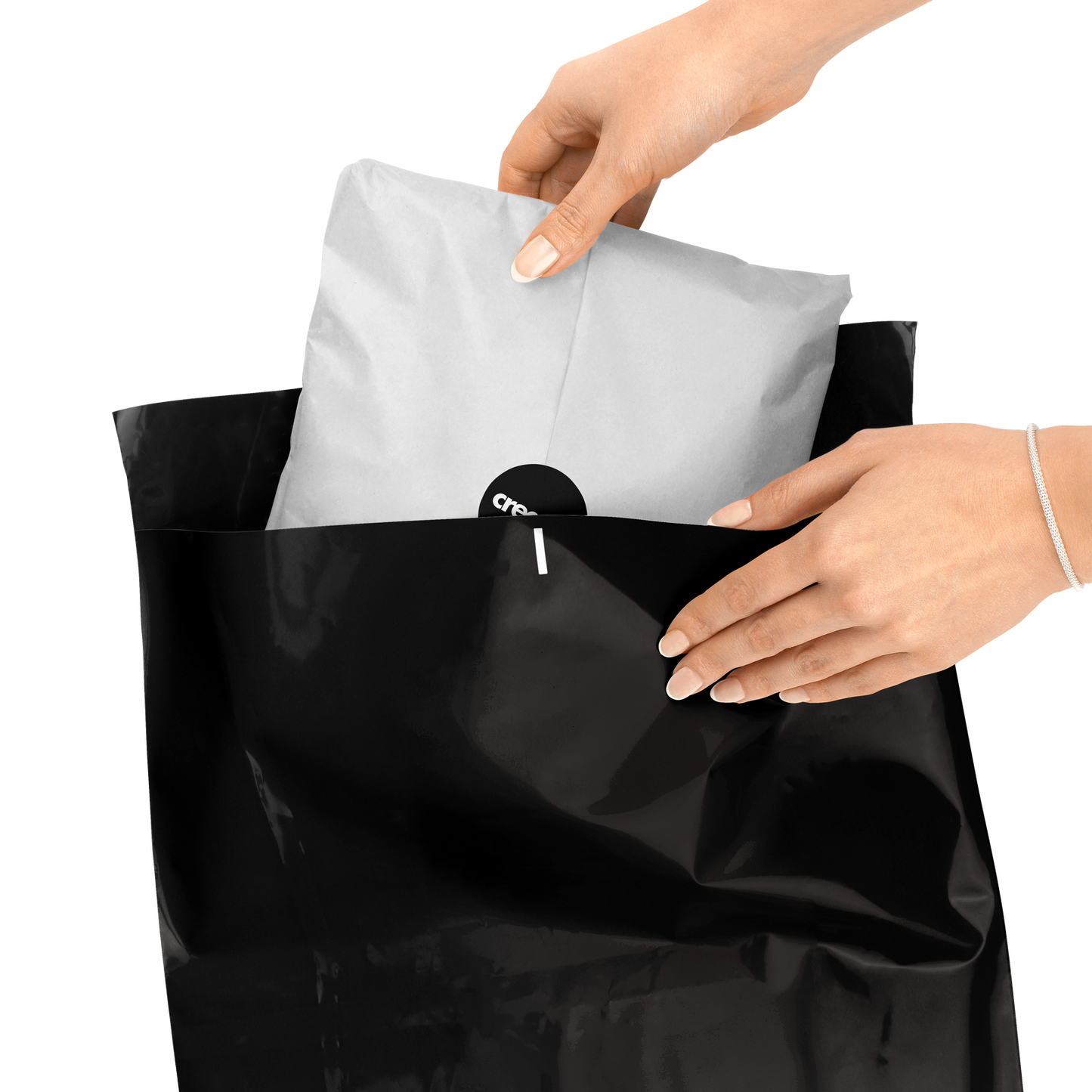
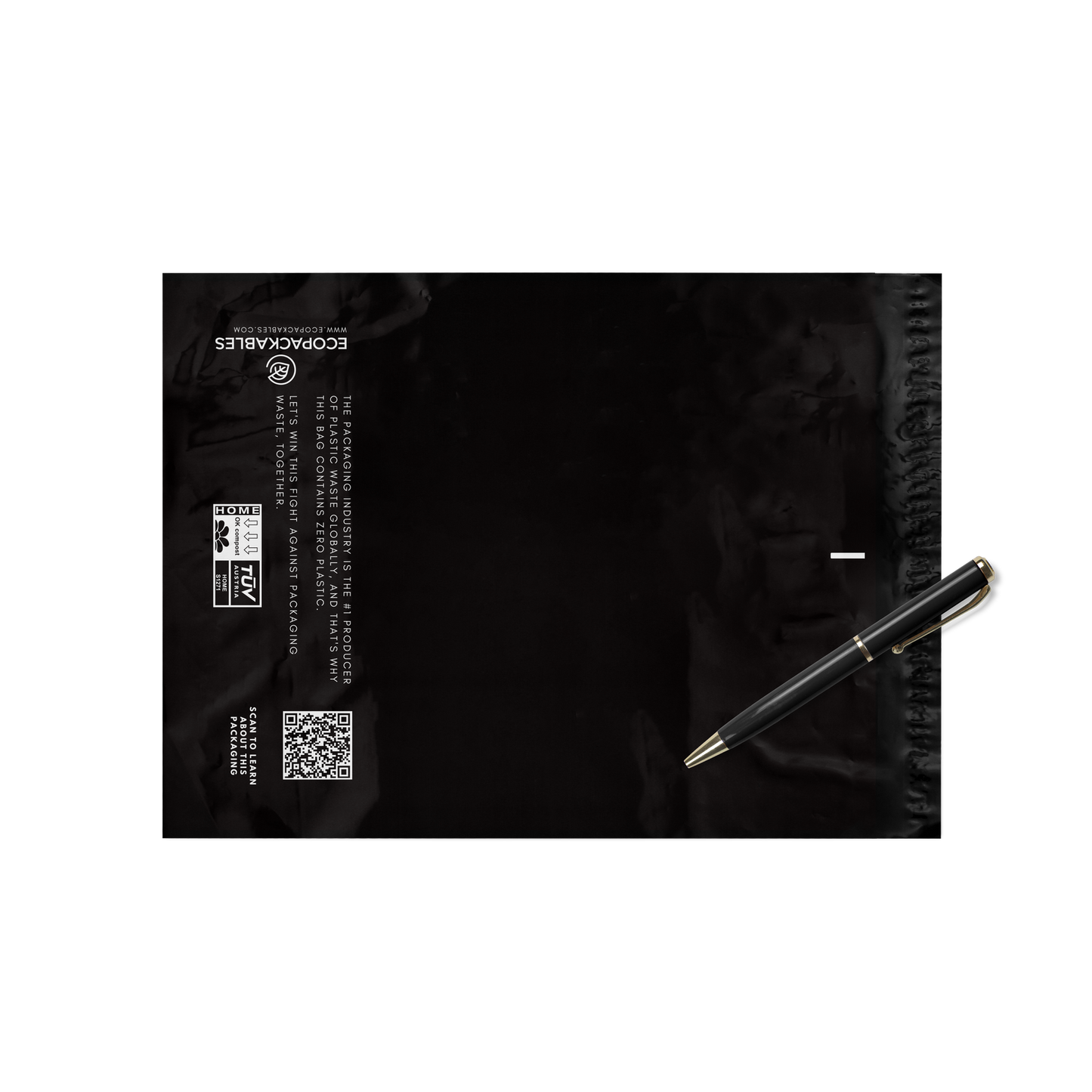

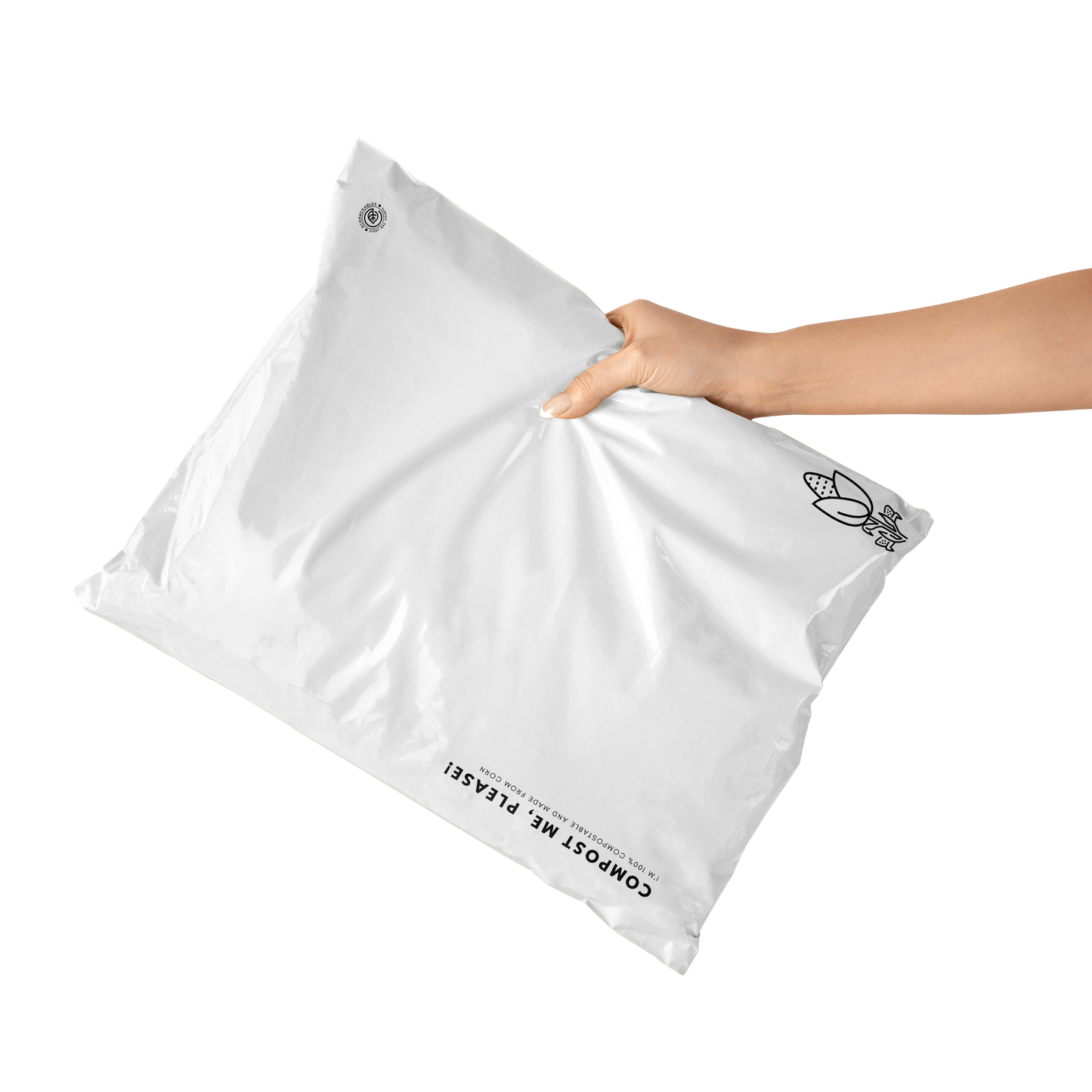
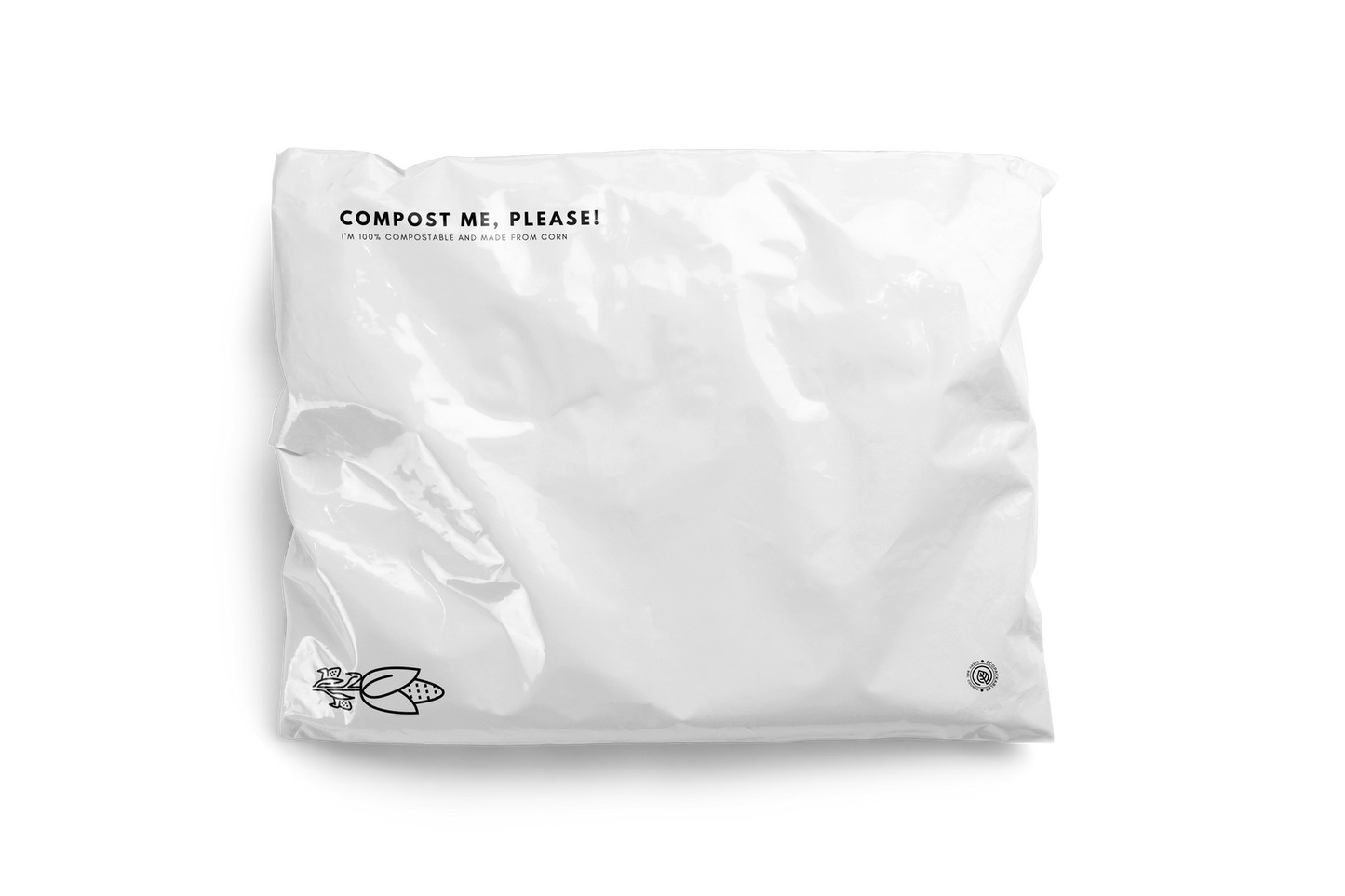

We Work With
Materials

EcoPackables D42 Film
Made from our D42 film, which consists of organic materials like Cassava Root and Cornstarch, along with fully compostable polymers that are both bio-based and fossil-based. Thickness ranges from 30-110μm. Colors can be customized.
More About This Product
Our 100% Compostable Polymailers provide an eco-conscious packaging solution ideal for industries like apparel, cosmetics, healthcare, bedding, art supplies, and more. These mailers are crafted from D42 film—a blend of organic materials (cassava root and cornstarch) combined with compostable polymers, ensuring biodegradability without plastics or microplastics. Certified by TUV and ABA, they decompose fully in 180 days in home composting conditions and 90 days in industrial facilities. Custom options include fully adjustable sizes, two-sided, full-bleed printing (up to 8 colors), tear strips, and thicknesses between 30-110μm. The mailers’ 1-year shelf life maintains their integrity for extended storage, and we offer Kraft paper alternatives that are recyclable and compostable, suitable for higher-volume needs. Designed for brands seeking sustainability messaging, these mailers also provide water resistance and durability to protect products in transit. Sample kits are available for orders of 5,000+ units to let you experience the quality and eco-friendliness firsthand.



















